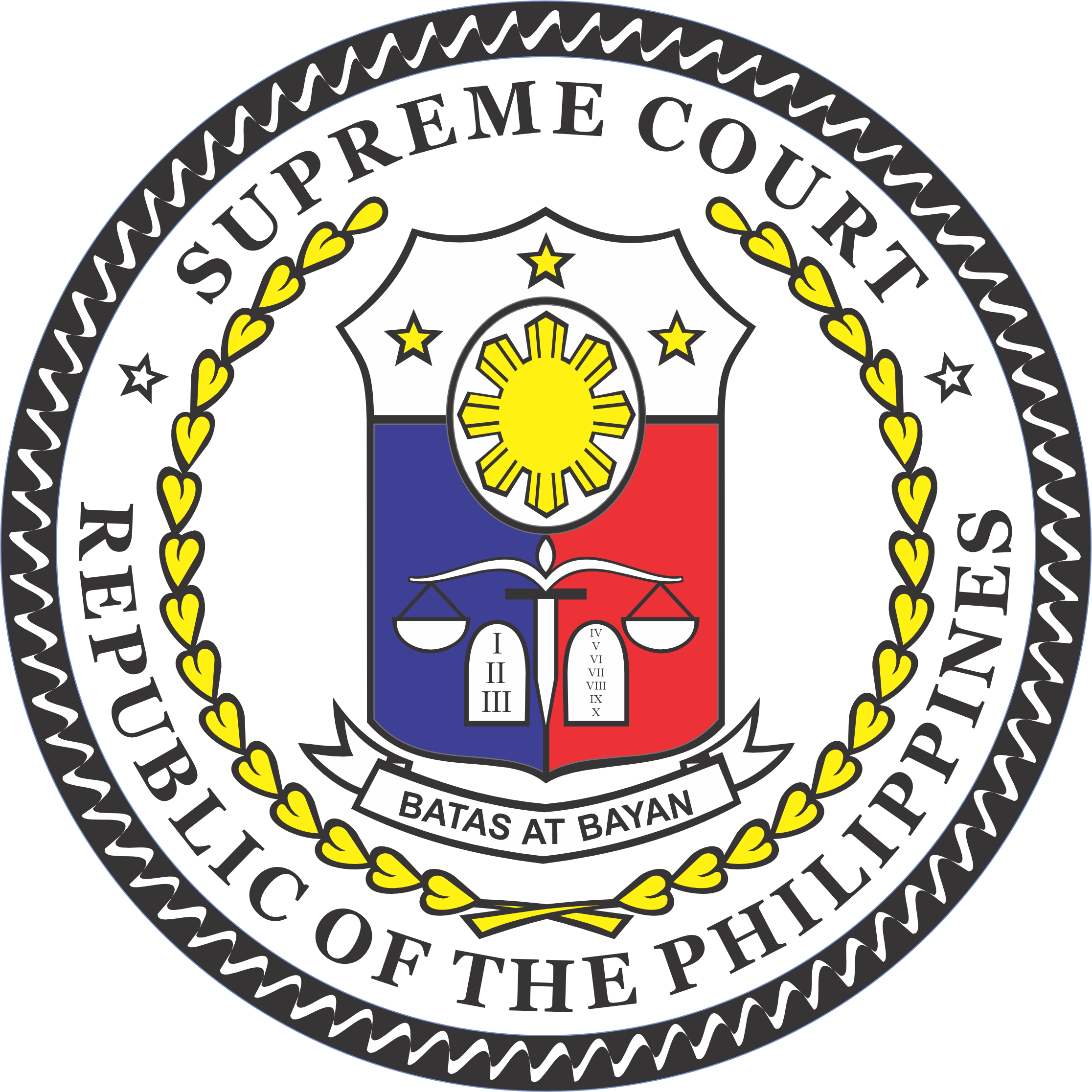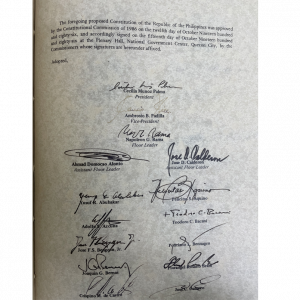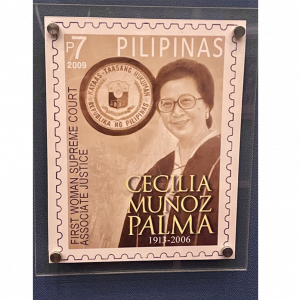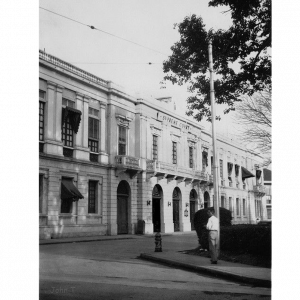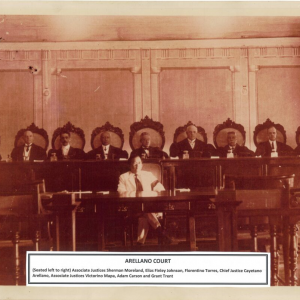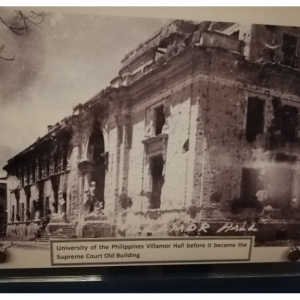Chief Justice Gesmundo: Court to Pursue Digitalized Format in Bar Exams
February 25, 2022
Chief Justice Alexander G. Gesmundo yesterday bared the Supreme Court’s plan of continuing the digitalized format in future Bar Examinations as he urged the academe to take full advantage and adapt to technological advancements.
Speaking during the hybrid formal launching of the Legal Education Advancement Program (LEAP) of the Legal Education Board (LEB) at the Sofitel Philippine Plaza Hotel in Pasay City on Thursday, February 24, 2022, Chief Justice Gesmundo called on the academe’s support to the Court’s efforts towards digital transformation, especially after the conclusion of the first ever localized and automated Bar Examinations.
“To sustain the momentum of this digital shift, the Court will pursue the conduct of all succeeding Bar Examinations in a computerized format, a long overdue innovation, to align with our Strategic Plan’s drive towards running all of the judiciary’s adjudicative and administrative systems digitally. Thus, I earnestly enlist the Legal Education Board, the Philippine Association of Law Schools, and our esteemed law deans to adopt the necessary change in policies and methodologies as the Court fully transitions to this new platform for administering the Bar Examinations,” said the Chief Justice. The Court’s Strategic Plan for 2021-2026 entitled Justice Real Time espouses policy changes, capacity building, expanding meaningful access, and technological innovation.
He added: “We suggest a complementary remodeling of pedagogical tools, therefore, to maximize the students’ use of technology in their learning, to better equip our law students with the adaptive skills to prepare them not only for a digitized Bar Examinations, but the digital world that they will practice law in.”
Justice Ramon Paul L. Hernando, Chairperson of the Committee on Bar Reform, echoed the statement of Chief Justice Gesmundo. He said: “If we are to see the day that our newly-minted legal professionals would become productive players and attuned to the needs of our society from the outset, we obviously need to look forward by coupling our academic focus with the realities of active practice. I see this plainly in the LEAP.”
The 2022 Bar Examinations will be chaired by Justice Alfredo Benjamin S. Caguioa.
Chief Justice Gesmundo underscored the need to push for a fully functional, efficient, and ethical legal system by advancing the country’s legal education, a commitment he had categorically made short upon his assumption as Chief Justice last year. As early as 2019, then Associate Justice Gesmundo had underscored the country’s need to advance its legal education when he chaired the first ever Legal Education Summit (LES).
Chief Justice Gesmundo said that the Supreme Court’s Technical Working Group on Implementing the Recommendations from the LES of 2019, chaired by Justice Hernando, has already commenced its work to propose revisions to Rule 138 of the Rules of Court.
Chief Justice Gesmundo also said that among these “exciting changes” to look forward to are changes on the requirements for admission to the Bar, under Rule 138, including the revisions of (a) examination subjects; (b) weight of the subjects; (c) schedule of Bar Examinations; (d) completion of certain mandatory courses for applicants to the Bar Examinations; and (e) the proposed methodology for administering the Bar Examinations; the institutionalization of a certification program for law students who have completed a given number of units, which will allow them to render a limited number of services; and the provision of a Bar Manual to make the examinations easier to administer, more streamlined, and consistent from year to year.
The Chief Justice also called for support from the academe on the Court’s planned National Legal Aid Summit to be held within this year or early next year. He also called for their involvement in the Court’s Campaign for Ethical Responsibility. He said that the Court has already commenced with the ongoing revision of the almost 35-year-old Code of Professional Responsibility, which will culminate in a National Summit on Ethical Responsibility in the last quarter of this year.
Chief Justice Gesmundo commended the LEB for its program launch, saying that LEB and the University of the Philippines Law Center led the country in “’taking the LEAP’ for legal education.”
Justice Hernando also commended the LEAP as it “covers the crucial corners of legal education advancement.”
A collaborative endeavor of LEB and UP, LEAP is an amalgamation of reform initiatives in teaching and learning the law, legal scholarship, and the administration of legal education in the country. It seeks to ensure that the legal education system is ready to adapt not only to the continuing pressures of present-day challenges facing society, but also to the rapid technological advancement in teaching and the evolving issues, trends, and concerns in the study of law.
The LEAP focuses on six target areas: 1) the Model Law Curriculum Revision; 2) Policy Reform, which includes identifying Centers of Excellence and formulating a regulatory framework for government-run law schools; 3) Knowledge, under which LEB will undertake a Bar Examination Performance Study and a Mental Health Study; 4) Access, which includes establishing a Foundational Law Teaching Certification Program; 5) Stakeholder Conferences; and, 6) Digital Adaptation, which includes development of a Management Information System and a Learning Management System.
LEB Chairperson Anna Marie Melanie B. Trinidad showed appreciation for the Judiciary, stressing that “we have a Supreme Court that is heavily invested in legal education.” The LEAP will benefit the 127 law schools nationwide and will tap the technical and professional expertise of legal scholars and academicians, practitioners, and legal researchers. ###
